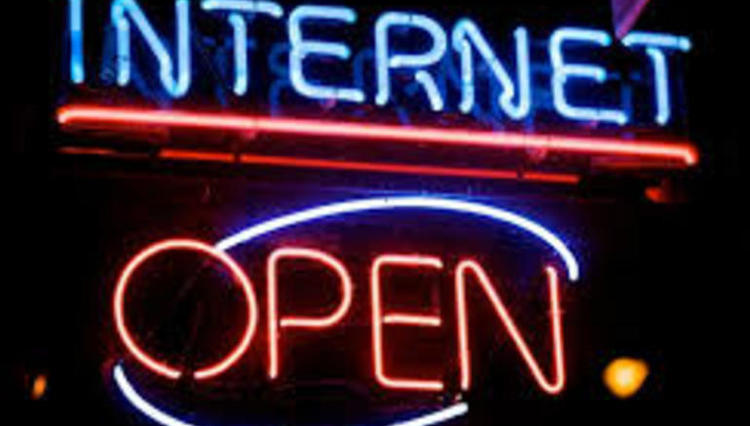Life in the Fast Lane: Online Privacy, Net Neutrality, and Small Businesses

President Donald Trump is expected to sign a measure repealing online privacy rules. This would have required Internet service providers to get explicit permission from their customers before selling their personal information.
Congress voted to repeal privacy regulations in March, and sent the measure to the president for his signature. They were adopted by the Federal Communications Commission last October, but never went into effect.
The repeal came amid protests from privacy advocates. This was expected since Trump became president and set up larger fights over Obama-era net neutrality requirements later this year.
Republicans have been itching to kill net neutrality rules even before the FCC adopted them in 2015. And with Tump-appointed Ajit Pai now chairing the agency, they may have the political muscle to get it done. “We need to fire up the weed whacker,” Pai said, “and remove those rules holding back investment, innovation, and job creation.”
Supporters of the FCC rules warn that if net neutrality rules are removed, small business owners will be the biggest losers; it could make it that much harder for them to control their online brands.
Online Privacy
Privacy advocates argue that rolling back the online privacy regulations means broadband providers like Comcast and AT&T can do whatever they want with their customers’ data. “Advertisers and marketers are lining up to get access to all the information that’s now available about us,” said Jeff Chester of the Center for Digital Democracy.
The reversal of those regulations is seen as a victory for major ISPs. But a spokesman for Comcast says its customers have nothing to worry about. “We do not sell our broadband customers’ web browsing history,” said privacy officer Gerard Lewis. “We did not do it before the FCC’s rules were adopted, and we have no plans to do so.” In separate statements, Verizon and AT&T concurred.
If the Obama-era regulations had gone into effect, then ordinary Internet users would have had more say in how ISPs use the data they collect, like browsing history. ISPs already collect user data, but the regulations would have required them to get explicit customer permission before sharing it with advertisers and marketers.
The repeal of those regulations came without the support of Democrats. “Overwhelmingly, the American people do not agree with Republicans that this information should be sold, and it certainly should not be sold without your permission,” said House minority leader Nancy Pelosi. “Our broadband providers know deeply personal information about us and our families.”
The big ISPs argued that the FCC regulations weren’t fair because they didn’t apply to companies like Google or Facebook.
“The FCC Made a Mistake”
Now, a larger battle looms over net neutrality, the idea that ISPs must treat all Web traffic equally.
The FCC placed restrictions on broadband providers under the Obama-era net neutrality rules, which are still in effect. In particular, they cannot deliberately speed up, slow down, or block traffic on specific websites and apps. They can establish so-called “fast lanes,” in which data is streamed faster, only in some instances, such as remote heart monitoring, where data speed might be the difference between life and death.
Ajit Pai, appointed to the FCC by Obama in 2012 and elevated to its Chairmanship by Trump, calls those net neutrality regulations a mistake. “[That] approach injected tremendous uncertainty into the broadband market,” he said in February. “And uncertainty is the enemy of growth.”
Life in the Fast Lanes
There doesn’t seem to be much doubt: change is headed our way. The days of the open Internet are numbered. Those fast lanes will be available for those who can pay for it; everyone else can expect to be shunted into the slow lane. The ISPs will determine the speed of the links we click and the sites we visit. They’ll be free to broker deals with content providers who are willing and able to pay to stream on the fast lanes.
“The Internet has become an amazing tool because it is largely left untouched by regulation,” said U.S. Rep. Kevin McCarthy, a California Republican. “That shouldn’t stop now.”
In New York magazine, journalist Brian Feldman said the ISPs look at it this way: if we own the information superhighway, why can’t we charge tolls?
Critics say small businesses will suffer as a result. They don’t have the deep pockets of a major player, such as Google or Netflix. If they cannot pay to access Internet fast lanes, managing and cultivating their brands and online reputations will suffer.
Not Giving Up
Those same critics are not without hope. “The good news,” said Timothy Karr of Free Press, a longtime proponent of net neutrality, “is that millions of people on both the left and right are willing to take action against net neutrality foes in Congress and at the FCC.” The fight for an open Internet, he said, never ends.
Max Temkin, creator of the popular game Cards Against Humanity, says he is willing to fight for net neutrality. If it is rescinded, he tweeted, “I will buy the browser history of every congressman and congressional aide and publish it.”
As Evan Greer, campaign director for the digital rights group Fight for the Future, put it: “Congress should know by now that when you come for the Internet, the Internet comes for you.”
Need help protecting your online privacy? Contact our digital privacy experts today.
